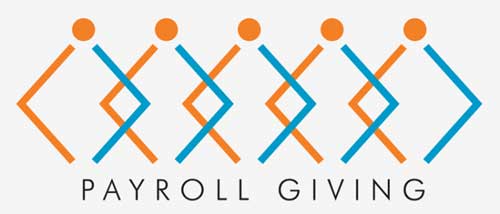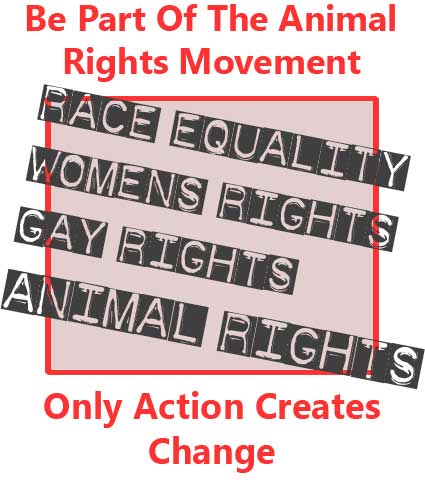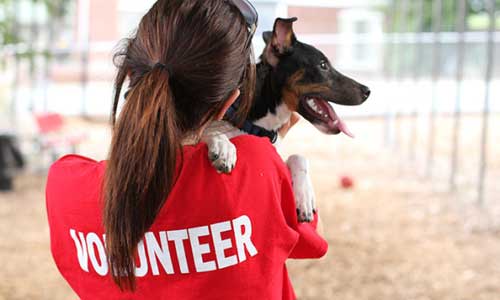- Home
- Fundraising Ideas
- Tax Donations To Charity
Tax Donations To CharitY At No Extra Cost
By Susan Donaldson, B.A. (Hons), Animal Campaigner
Tax donations to charity are a big help; especially to animal charities. They do not cost you, the donor, any extra. When you donate, there is an option on the form to ‘Gift Aid’ your donation. If you chose to do this, the tax on your donation will go to the charity rather than the Government. You can only gift aid your donation if you are a UK taxpayer.
Another way of giving tax donations is through ‘Payroll Giving’.
Charities who wish to benefit from tax donations must be registered with HM Revenue and Customs.
Read on to learn about these, and other methods of tax efficient giving, so that animal charities can benefit.
 Tax Donations To Charity
Tax Donations To CharityThere are many ways to give tax donations to charities
Contents
Tax Donations To Charity
Tax Donations With Gift Aid
Ticking the ‘Gift Aid’ option on forms when donating, means the charity will receive the tax on your donation, rather than the Government. It costs you nothing extra.
The charity will only get such tax donations if you pay income tax in the UK.
People sometimes forget to tick, or ignore, the Gift Aid option on animal charity donation forms. This means the charities miss out on an enormous amount of funds that they are desperately in need of.
To find out more about giving tax donations to charity, visit the Gift Aid government web page.
 Tax Donations To Charity
Tax Donations To CharityGift aid it to make sure your donation gives extra to the animal charity. It is a tax donation on top of your donation, that would otherwise go to the Government, so it costs you nothing extra
Return to the Table of Contents
TAX DONATIONS TO CHARITY
Payroll Giving
Payroll giving involves making a donation to charity from your gross salary, i.e. before the tax is taken off. It means you can give more to the charity at no extra cost to yourself. This is because the tax that would normally be paid to the government is gifted to the charity as well as your donation.
Payroll giving is usually used as a way of regular giving. This allows the charity to receive reliable income and enables them to plan for the future.
Find more information about payroll giving for donors, employers and charities
An alternative resource on all the above payroll providing information can be found on the chartered institute of fundraising site.
 Tax Donations To Charity
Tax Donations To CharityTax Donations: With payroll giving, your donation is made to the charity before the tax is taken off. It means the charity receive more at no extra cost to you
Return to the Table of Contents
TAX DONATIONS TO CHARITY
Legacies
In this context, a legacy is a gift to charity made in a will. Anybody can do it. Animal charities depend on legacies. Without them, they would not be able to survive. However, only one in seven people leave a legacy to charity. Even fewer leave anything to animal charities.
Legacies are exempt from inheritance tax, which is set at 40% at the time of writing this. If your estate value is over the exempt threshold, it may help reduce the amount of tax that needs to be paid on it. This tax would otherwise go to the Government.
In April 2012, a reduced rate of inheritance tax of 36% was introduced for estates leaving 10 per cent or more to charity.
Information on current inheritance tax rates and thresholds can be found here.
It is not just money that can be left in legacies, but land, property, shares, or other items.
Find more details about leaving a legacy to an animal charity on the leave a legacy page.
Return to the Table of Contents
TAX DONATIONS TO CHARITY
Donating Shares To Animal Charities
In alternative to giving money to your favourite charities can be the donation of shares or securities. You can donate shares to any UK, EU, Norwegian or Icelandic charity that is registered with HMRC.
This is a very tax-effective way to give and can make a significant difference to your tax bill. Giving shares can actually cost you less than giving cash.
Tax Benefits
There are two types of tax relief that are potentially available when you give shares: Income Tax relief on the value of the shares and exemption from Capital Gains Tax.
With the higher rates of income tax at 40% and 50% and capital gains tax at 18% (or 28% for higher rate taxpayers), this can amount to a substantial tax break. Tax relief will be given for the market value of the shares as a deduction from your income tax liability for the tax year in which the gift is made.
Additionally, you may be liable for exemption from Capital Gains Tax on the increase in the value of the shares that you would have had to pay if you had simply sold them.
All transferable shares can be donated to animal charities, but only publicly quoted shares qualify for tax relief to you, the donor. Publicly quoted shares include shares listed on the London Stock Exchange or Alternative Investment Market Shares (AIM).
For a full list of qualifying stock exchanges, please visit the HMRC website. You can claim income tax relief on the value of the shares at the rate of tax you pay.
For example:
- If you pay income tax at 20%, your income tax bill could be reduced by 20% of the value of the gift.
- When you pay income tax at 40%, your income tax bill could be reduced by 40% of the value of the gift.
- If you pay income tax at 50%, your income tax bill could be reduced by 50% of the value of the gift.
Other influencing factors/tax liabilities may alter the above figures. You should seek professional financial advice before proceeding.
If you wish, you can then donate your tax relief straight back to the animal charity through your self-assessment tax return.
For more information on these tax reliefs, you can refer to the HMRC guidance notes.
 Tax Donations To Charity
Tax Donations To CharitySee HMRC Guidance Notes For More Details
Return to the Table of Contents
TAX DONATIONS TO CHARITY
Trusts And Foundations
A charitable trust or foundation is a legal entity which can be set up by anyone who has decided that they want to set aside some of their assets or income for charitable causes.
It does not require a substantial sum of money to set up a trust. As a charitable trust is classified as a charity, it can receive money through tax-efficient giving methods – including Gift Aid, Payroll Giving, or Gifts of Shares.
Tax Benefits
A trust can receive money through tax-efficient giving methods, including Gift Aid, Payroll Giving, or Gifts of Shares. In addition, a trust will not pay Corporation Tax, Inheritance Tax, or tax on its investment income.
There will be no liability for business rates (there is a mandatory relief against business rates at 80%, as well as a further 20% on a discretionary basis) if the trust runs its office.
Donors who pay a higher rate of tax can also receive tax relief on any money they pay into it. Unless the trust is large, it will not have to register for VAT.
 Tax Donations To Charity
Tax Donations To CharitySee More Details On Charitable Trusts
Return to the Table of Contents
TAX DONATIONS TO CHARITY
Donating Land Or Property To Animal Charities
Another tax-effective way that you can give is by donating land or buildings to charity. This can be either in their entirety, or a proportion of the holding.
If you give in this way to a UK, EU, Norwegian or Icelandic charity that is registered with HMRC, there may be generous Income and Capital Gains Tax relief available to you.
What gifts of Land or Property attract tax relief?
Any land or buildings are eligible for tax relief as long as the whole of your interest in the property is handed over to the charity.
How does the tax relief work?
The tax relief works in much the same way as with a gift of shares. Tax relief will be given for the market value of your property as a deduction from your income tax liability for the tax year in which the gift is made.
Additionally, you may be eligible for exemption from Capital Gains Tax on the appreciation of the property value that you would have had to pay if you had simply sold the property.
If you pay income tax at 40%, your income tax bill could be reduced by 40% of the value of the gift. If you pay tax at 50%, your income tax bill would be reduced by 50% of the value of the gift. The amount that can be deducted from your tax liability is:
- The market value of the property PLUS
- Any associated costs of transferring the property, such as solicitor’s fees MINUS
- Any proceeds of the sale, or the value of any benefits that you receive as a consequence of making the gift
You should claim the tax relief by completing the appropriate section of the self assessment tax return. If you wish to, through your tax return, you can donate the tax relief amount to an animal charity as well.
You must discuss all arrangements carefully with a solicitor or financial advisor before proceeding with the sale. It is also important to remember that other tax liabilities or reliefs may affect the size of the relief that you can claim.
 Tax Donations To Charity
Tax Donations To CharityDonate Property Or Land To Animal Charities
Return to the Table of Contents
TAX DONATIONS TO CHARITY
Charitable Giving By Businesses
There are a number of tax incentives to encourage businesses to support UK, EU, Norwegian, and Icelandic charities. Animal charities could benefit greatly from giving by business.
What is the most tax-efficient way for my company to donate money to charity?
Your business can claim tax relief on donations of money to charity under corporate Gift Aid. The way this works depends on whether your business is a company, you are a sole trader, or trading partnership.
Whilst charities can thank you, there are limits on what they can give as a token of appreciation – see further information on the Gift Aid benefit rules.
Companies
To give through Gift Aid, your company simply makes a gift of money to charity and deducts that amount from its total profits before calculating its corporation tax. Therefore, the company receives corporation tax relief on the full donation.
Self Employed
Gift Aid donations from the self-employed are treated in the same way as gifts from individuals. When you make a donation to a charity, CASC, or voluntary organisation, that charity can claim back the tax from HMRC that you have paid on the donation. It and means the charity can get an extra 25p for every £1 that you give.
Partnerships
If your business is run as a partnership, your donations will be eligible for Gift Aid in the same way as donations from individuals. Generally, the donation will be split into equal amounts from each of your individual partners.
This is unless you decide it should be split differently and notify the charity of this. VAT is not affected, unless the charity gives a gift in return that could be viewed as sponsorship.
Giving property, Land or Shares
Your business can claim Corporation Tax relief on the value of property, land and shares donated to charity. You can also claim the relief if you sell shares to a charity at less than the market value.
In this situation, the relief is deducted from the difference between the market value and the proceeds received from the charity. Gifts will also be exempt from Capital Gains Tax.
How To Claim The Relief
Companies can claim the relief by entering the amount into the Charges Paid box of its Corporation Tax Self Assessment return for the accounting period in which you made the gift. Partners, or the self-employed, details are entered on the Income Tax Self Assessment form.
In addition, any gain made on the gift is exempt from capital gains tax. The deduction is made against the full market value of the gift, less anything received in return.
Claiming Tax Relief For Employees On Loan As Volunteers
If your employees are seconded to a charity, or volunteer, during work time, and you continue to pay their salary, you can deduct the costs associated with employing that person as if they were at work.
You simply treat the expenditure as a normal business expense when calculating profits for tax purposes. This applies to sole traders, trading partnerships and companies with a trading or investment business.
What You Can Do As An Employee
As an employee, you could suggest any of these ways of helping animal charities to your employer or company.
Tell them about the benefits. Businesses often prefer to give to charities in their local community, so you could encourage them to help local animal charities.
Return to the Table of Contents
Tax Donations To Charity
Other Ways To help Stop Animal Suffering
Here are more ways to earn and raise funds to help animals in need.
On this site, there are many varied ways you can help animals and help stop cruelty. In fact, there are so many ways that there is something for every personality type, no matter what their circumstances.
If you would like to learn more about why we so urgently need to help stop animal suffering, please see this website. It will allow you to broaden your knowledge of many types of worldwide animal abuse, giving you the ability to help animals by spreading awareness and answering questions people may have. Please be aware that you may find the information distressing, especially if you are a more sensitive person.
One great way to help animals is to share the information you have seen on this website. Doing so means more people could help stop animal cruelty, and that would make you responsible for more animals being saved from suffering. Together, we can help people help animals.
 Only Taking Action Will Help Animals
Only Taking Action Will Help Animals
